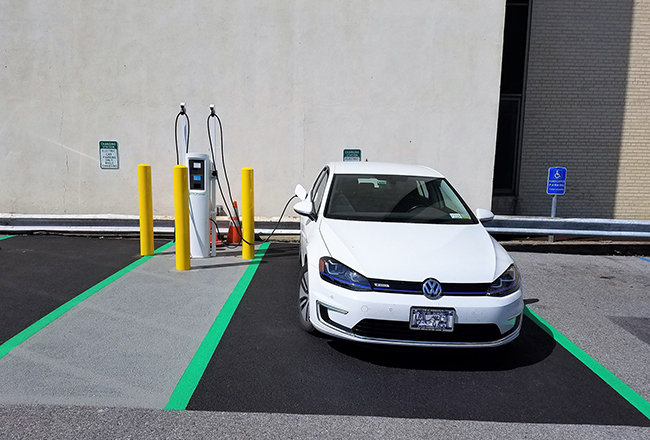The debate about Connecticut instituting electronic tolls on several of its major roadways is on again.
 Gov. Dannel Malloy has signed an executive order directing state agencies to conduct a comprehensive assessment on implementing a new funding plan for Connecticut”™s transportation system that he said “prioritizes economic fairness toward the state”™s residents by ensuring that drivers from out of state contribute their fair share to the operation.”
Gov. Dannel Malloy has signed an executive order directing state agencies to conduct a comprehensive assessment on implementing a new funding plan for Connecticut”™s transportation system that he said “prioritizes economic fairness toward the state”™s residents by ensuring that drivers from out of state contribute their fair share to the operation.”
The assessment could also result in a reduction of the state gasoline tax, which in 1997 was reduced from 39 cents per gallon to 25 cents per gallon, where it has since remained.
Malloy”™s proposed assessment comes with a hefty price tag: $10 million, which the state Bond Commission will vote upon during its July 25 meeting.
“During this past legislative session, we heard time and again from legislators that they wished for more information regarding electronic tolling, including specific recommendations with respect to its possible implementation,” Malloy said. “As Connecticut”™s General Assembly and next governor consider how to address the future of our state”™s transportation funding, this study and plan will prove to be invaluable in their endeavor to make an informed decision.
“Without transforming the way the state funds its highways,” he continued, “we will be unable to pay for the large-scale construction and rehabilitation projects that our state needs to ensure continued safe travel while attracting businesses and growing our economy.”
The governor said the need for developing a new funding method is due to the ongoing destabilization of the Special Transportation Fund, which finances the state”™s entire transportation system and is generated primarily through motor vehicle fuel taxes. As vehicles become more fuel efficient or completely electric, the fund will continue to become more insolvent as each year goes by, Malloy maintained.
The governor”™s executive order directs the Department of Transportation (DOT) to:
- Prepare a comprehensive assessment for possible electronic tolling on I-95, I-91, I-84, the Wilbur Cross Parkway, the Merritt Parkway, and any other limited-access highways as determined by the DOT commissioner, which includes potential toll monitoring and specifies proposed toll charges;
- Explore potential ways to provide discounts, tax credits or other value-pricing options to Connecticut residents while ensuring out-of-state drivers contribute their fair share;
- Explore plans that could reduce motor vehicle fuel taxes; and
- Study the environmental impacts of electronic tolling systems.
State Senate Republican President Pro Tempore Len Fasano, a longtime opponent of tolls, blasted Malloy”™s announcement.
“On his way out the door, Governor Malloy is continuing to spend taxpayer dollars as if there was no tomorrow,” Fasano said. “Over the last month, we learned he”™s giving $10 million to a foreign billionaire and now another $10 million to study tolls ”“ double what DOT originally estimated a study would cost.”
The “billionaire” comment was in regards to a $10 million loan the Malloy administration has committed to New York global fintech Seven Stars Cloud Group, which plans to move its headquarters for technology and innovation to the former University of Connecticut campus in West Hartford. Its Chinese founder, co-chairman and CEO, Bruno Wu, and his family were estimated by Forbes in 2016 to have a net worth of about $1 billion.
“The governor does not even know what the next administration”™s plan will be for transportation or whether the next legislature will support the same vision for tolls he has in his mind,” Fasano continued. “So this entire study controlled by his administration could be a massive waste of money. Gov. Malloy needs to get on his horse, ride into the sunset and leave taxpayers alone.”























if this state doesn’t put tolls on its borders sooner than later it is a huge mistake.
we are losing millions of dollars in revenue everyday we don’t have them.
we need to have people passing through our state going from NY to Mass and above that are deteriorating our roads share the maintenance cost and stop taxing the hell out of us.
every time I go out of state an pay a toll it infuriates me that I help them pay for their roads but they are not reciprocating. this is a change that must happen. please get it done.
George, there is a simple answer. CT cannot by law (federal interstate commerce laws) put tolls only on the border of the state to try to get only those from out of state. They have to be spread throughout the state and not just on the borders. The reason is so that interstate commerce is not unfairly affected and essentially controlled by any one state that wants to act like a gate on interstate highways if lets say the state wants to set the toll price unreasonably high. So basically everyone that drives or buys anything in this state is affected by tolls, not just those passing through from out of state.